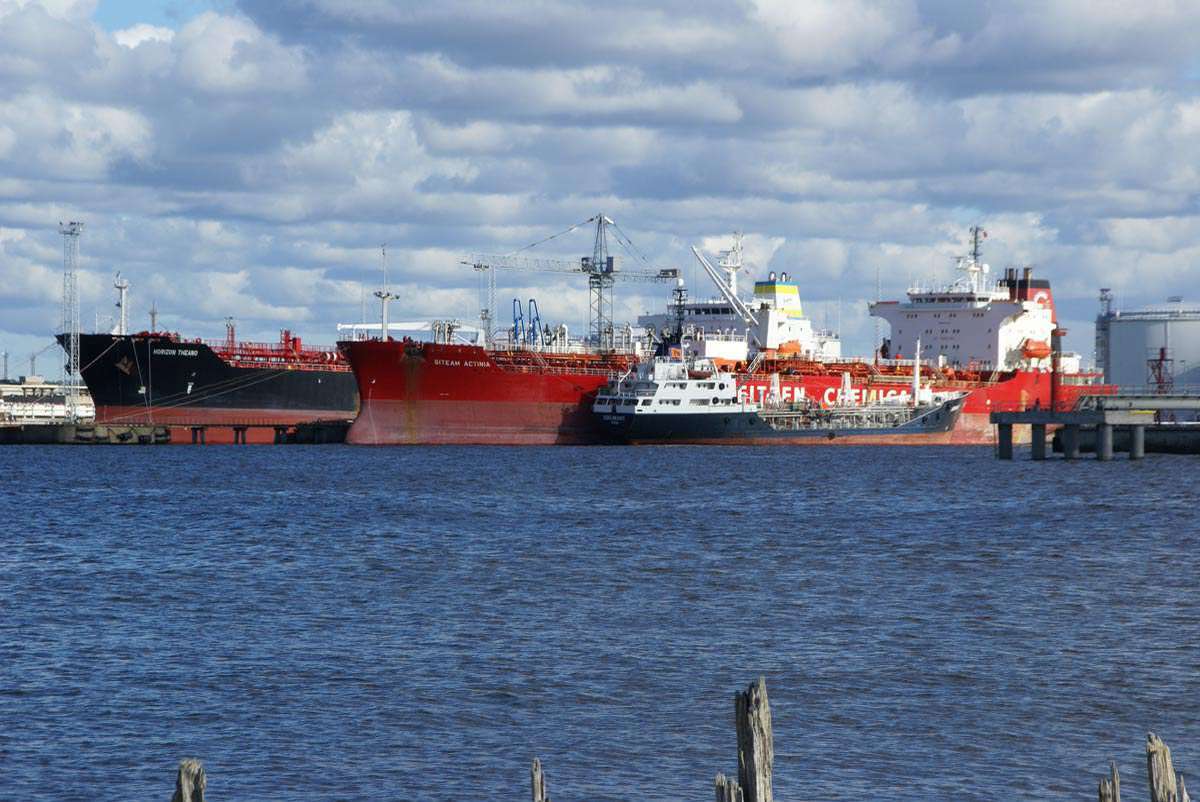Latvia introduces financial support for biomethane projects
Latvia’s new €21.5 million financial support programme could help create favourable conditions for future biomethane bunkering in the region by lowering production costs and expanding local supply.
 IMAGE: Container ships docked at the Port of Ventspils in Latvia. Port of Ventspils
IMAGE: Container ships docked at the Port of Ventspils in Latvia. Port of Ventspils
The government will offer loans and a capital discount of up to €4.2 million ($4.9 million) per project to build biomethane production plants and develop refuelling and transport infrastructure in the country.
The programme will also support the installation of natural gas connections and the purchase of biomethane transport vehicles.
ALTUM, Latvia’s state financier, will provide loans of up to €10 million ($11.6 million) and its guarantees can cover up to 80% of the eligible costs of loans issued by commercial banks, the government said.
Support levels will vary by company size. The programme will cover 45–65% of costs for biomethane production equipment and infrastructure and 30–50% for vehicles used to transport biomethane.
Higher support rates will apply to companies in Latvia’s eastern regions, including Latgale.
“Promoting biomethane production is one of the steps that will help strengthen Latvia's energy independence in the long term,” Latvia’s energy minister Kaspars Melnis said, endorsing the country’s fragmented but significant potential for biomethane production, particularly from livestock and poultry farming residues.
Potential upside for bunkering
Latvia is located on the eastern Baltic Sea, with major ports like Riga, Ventspils and Liepāja, providing direct access to key Baltic and North European shipping routes.
While the government’s scheme does not explicitly target the bunkering sector, biomethane producers and bunker suppliers could benefit from lower capital costs and increased regional output.
A new EU methodology under review could also lift the current €2.25 million ($2.6 million) guarantee cap for large companies, opening the door for larger biomethane projects. This could support the development of high-capacity plants, which can potentially boost regional production and strengthen future bunkering supply.
Stronger domestic output and improved logistics can theoretically support future use of biomethane as a marine fuel in the region, whether through grid-injected biomethane or later local liquefaction.
By Konica Bhatt
Please get in touch with comments or additional info to news@engine.online





